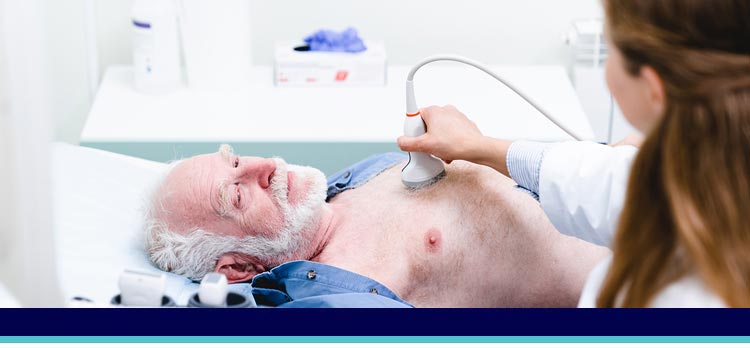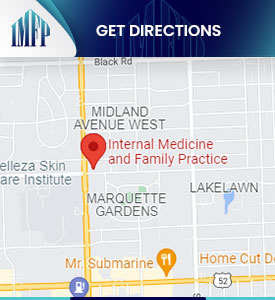Benefits of Getting an Early Echocardiogram
An echocardiogram is a non-invasive ultrasound test that helps detect heart issues early. If you experience symptoms like chest pain, shortness of breath, or dizziness, or have a family history of heart disease, an early echocardiogram can identify conditions like valve problems or heart defects. At our Internal Medicine and Family Practice, we offer echocardiograms with no appointment needed. Consult with Dr. Wael Mctabi or Dr. Samiullah Choudry to learn more. For more information, contact us or schedule an appointment online. We are conveniently located at 1719 Glenwood Ave Joliet, IL 60435.


Table of Contents:
What are the benefits of getting an echocardiogram early?
When should I consider getting an echocardiogram?
How does an early echocardiogram prevent heart failure?
What heart conditions can be detected with an early echocardiogram?
Getting an echocardiogram early can provide significant benefits in detecting heart issues before they become serious. An echocardiogram is a non-invasive test that uses sound waves to create images of the heart’s structure and function. Early detection of conditions like valve problems, heart failure, or congenital defects can allow for timely intervention, preventing further complications and improving long-term outcomes.
By identifying heart conditions early, doctors can develop personalized treatment plans to manage or prevent the progression of diseases. For individuals at higher risk, such as those with a family history of heart disease, high blood pressure, or diabetes, an early echocardiogram can help identify underlying issues that may not show symptoms until later stages. This proactive approach helps individuals stay ahead of potential health concerns.
In addition, early echocardiograms can help guide lifestyle changes and medications that can improve heart health. By catching problems early, you can avoid more invasive procedures or surgeries in the future and potentially reduce the risk of heart-related emergencies. Scheduling an echocardiogram as part of regular health checks is a proactive step toward ensuring long-term heart health.
For patients presenting with symptoms such as unexplained chest pain, shortness of breath, palpitations, or dizziness, an echocardiogram provides detailed insights into whether these symptoms are linked to heart abnormalities. This can include issues with heart valves, chambers, or overall heart function. As such, it is a vital component of the diagnostic process in both internal medicine and family practice settings.
During routine physical examinations, if a healthcare provider detects abnormal heart sounds, such as a murmur, an echocardiogram can be pivotal in distinguishing between benign and potentially serious conditions, such as valve stenosis or regurgitation. This aligns with the preventive and diagnostic priorities in family practice, helping ensure patients receive timely and appropriate care.
For patients with conditions like hypertension, congenital heart disease, or cardiomyopathy, regular echocardiograms may be integral to their ongoing management plan. These conditions are often managed within internal medicine practices, where continuous monitoring helps guide effective treatment strategies and adjustments.
An early echocardiogram can help prevent heart failure by detecting heart conditions before they progress to more severe stages. This non-invasive test provides detailed images of the heart’s structure and function, allowing doctors to identify issues such as valve problems, heart defects, or reduced heart pumping ability early on. By catching these conditions early, appropriate treatments such as medications, lifestyle changes, or medical procedures can be implemented to manage the condition and prevent the heart from becoming overworked, which could lead to heart failure.
At Internal Medicine and Family Practice, we encourage our patients to get an echocardiogram as part of their routine health check-ups, especially for those with risk factors like high blood pressure, diabetes, or a family history of heart disease. Early intervention can significantly improve long-term health outcomes, prevent complications, and help maintain heart function. Regular monitoring and early detection are key in reducing the risk of heart failure in the future.
An early echocardiogram can detect a variety of heart conditions that may not show symptoms until they become severe. Some common conditions include valve diseases such as aortic stenosis or mitral regurgitation, where the heart’s valves do not function properly, causing strain on the heart. It can also reveal congenital heart defects, which are structural issues present from birth but may go undetected without an echocardiogram. Additionally, an early echocardiogram can identify cardiomyopathy (heart muscle disease), where the heart becomes enlarged or weakened, potentially leading to heart failure.
At Internal Medicine and Family Practice, we emphasize the importance of early heart health assessments, especially for individuals at risk due to family history, high blood pressure, or other risk factors. Detecting conditions like pericardial effusion (fluid around the heart) or heart failure early allows for timely intervention, preventing more serious complications down the road. The images provided by an echocardiogram help doctors assess the heart’s function and plan the most effective treatment.
Regular echocardiograms can also help monitor existing heart conditions, ensuring that any changes in heart function are detected early. By identifying issues early, doctors in Internal Medicine and Family Practice can offer targeted treatments, such as medication or lifestyle changes, to manage the condition and prevent further damage to the heart. Early detection is key to maintaining long-term heart health and avoiding more invasive treatments in the future.
Dr. Samiullah Choudry emphasizes the importance of early echocardiogram testing to detect heart issues before symptoms progress. At Internal Medicine and Family Practice in Joliet, IL, early detection allows patients to understand their heart’s condition and take proactive steps toward better cardiovascular health. Through detailed imaging and interpretation, Dr. Choudry helps patients make informed decisions about maintaining a strong, healthy heart.
For more information, contact us or schedule an appointment online. We are conveniently located at 1719 Glenwood Ave Joliet, IL 60435. We serve patients from Joliet IL, Plainfield IL, Lockport IL, Channahon IL, Romeoville IL, Manhattan IL and surrounding areas
Check Out Our 5 Star Reviews








